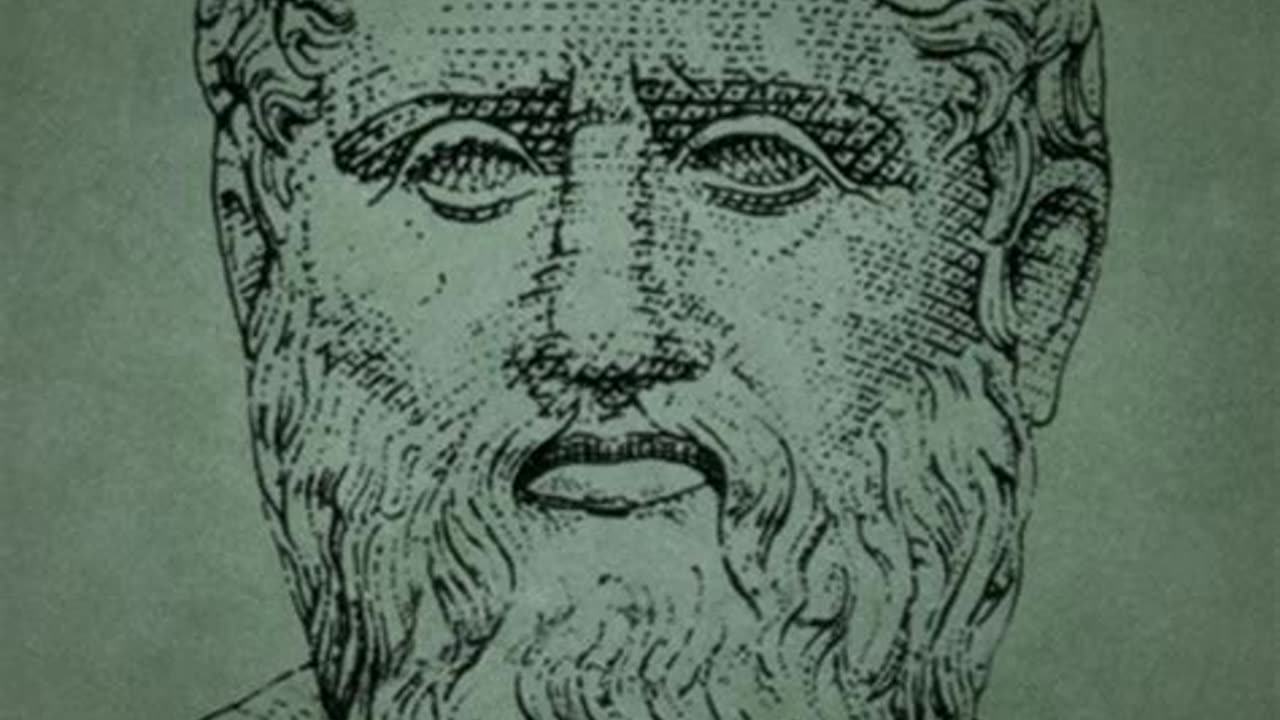Premium Only Content

The Republic by Plato | Summary
Buy Here: https://amzn.to/3TOxNOJ
""The Republic"" by Plato is a seminal work of ancient philosophy that delves into the nature of justice, the ideal state, and the role of individuals within society. Presented as a dialogue between Socrates and several other characters, the book explores various themes and concepts through a series of discussions.
One of the central ideas in ""The Republic"" is the concept of justice and its relation to the individual and the state. Plato argues that justice is inherent in the structure of a harmonious society where each person performs their designated role according to their abilities. He introduces the notion of the tripartite soul, comprising reason, spirit, and appetite, and suggests that achieving inner harmony leads to a just and virtuous life.
Plato proposes the existence of an ideal state, ruled by philosopher-kings who possess wisdom and knowledge of the Forms, abstract entities representing ultimate truth and goodness. These rulers are guided by reason and aim to create a society based on justice and virtue. The state is divided into three classes: the rulers, the auxiliaries (warriors), and the producers (workers), with each class performing its function for the benefit of the whole.
""The Republic"" also explores the nature of education and its role in shaping individuals and society. Plato advocates for a rigorous educational system that cultivates virtues such as wisdom, courage, and moderation. He emphasizes the importance of censorship in shaping the moral character of citizens and promoting the well-being of the state.
Throughout the dialogue, Plato critiques various forms of government, including democracy, oligarchy, and tyranny, arguing that they are prone to corruption and instability. He suggests that the ideal state is one ruled by philosopher-kings who govern with wisdom and justice.
Overall, ""The Republic"" offers profound insights into the nature of justice, the ideal state, and the pursuit of truth and virtue. It remains one of the most influential works in Western philosophy, inspiring countless generations to contemplate the principles of governance, morality, and the good life."
-
 3:48:42
3:48:42
FreshandFit
6 hours agoAfter Hours w/ Mr. Organik
105K75 -
 2:51:01
2:51:01
TimcastIRL
8 hours agoTrump DOJ CHARGES NY Democrats, Governor For Protecting Illegal Immigrants w/Debra Lea | Timcast IRL
162K158 -
 1:25:45
1:25:45
Kim Iversen
11 hours agoIvermectin: The Hidden Treatment for Cancer They Don't Want You to Know About
97.5K134 -
 2:14:44
2:14:44
TheSaltyCracker
8 hours agoTrump Takes AXE to DC ReeEEeE Stream 02-12-25
166K225 -
 1:20:54
1:20:54
Glenn Greenwald
11 hours agoTrump, Hegseth Signal Negotiations to End Ukraine War; The Nursing Home Patients Who Run DC: With Daniel Boguslaw | SYSTEM UPDATE #406
111K54 -
 1:07:48
1:07:48
Man in America
11 hours agoGold Standard 2.0? The ECONOMIC EARTHQUAKE That Will Change EVERYTHING!
84K18 -
 2:57:15
2:57:15
I_Came_With_Fire_Podcast
10 hours agoTrump Ends Ukraine War? | FEMA Houses Migrants, Forgets Americans! | Treason In The FBI?
51.7K7 -
 1:07:44
1:07:44
Adam Does Movies
14 hours ago $5.42 earnedHow To Get A Movie Made In This New Era And Is It Worth It? - LIVE!
58K2 -
 55:29
55:29
Flyover Conservatives
1 day agoMEL K | We’re WINNING, But The Globalists REFUSE to Back Down—Here’s What’s Next! | FOC Show
57.7K6 -
 14:54
14:54
BlackDiamondGunsandGear
14 hours agoIs this BUDGET Optic WORTH your $$$ / Gideon Optics Advocate
37.8K1